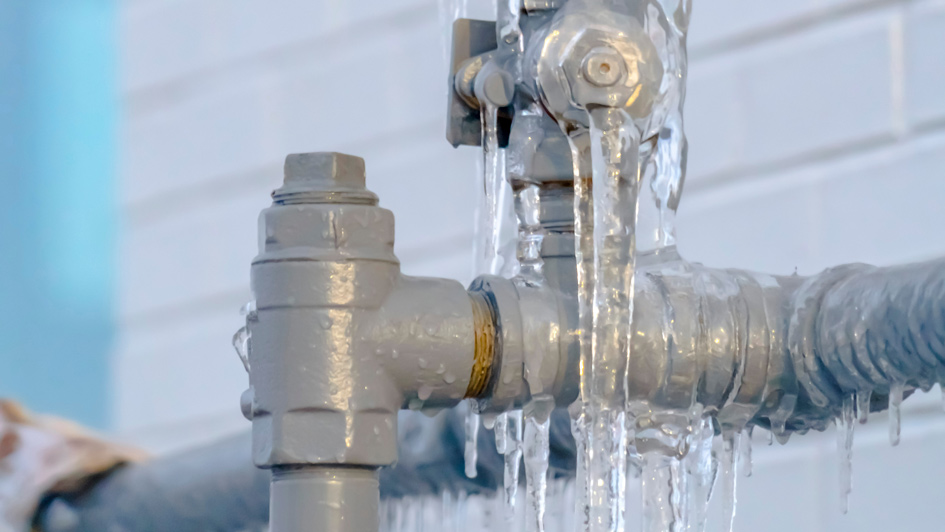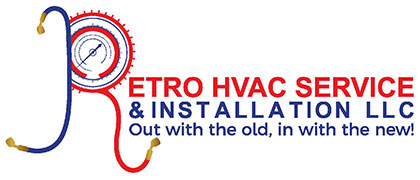
The snowy winter weather brings a fun day sledding down a nearby hill or snowball fights in the front yard. That being said, winter weather can be difficult on your home. Extremely cold conditions can encourage the water lines in your house's plumbing system to freeze and burst, which could lead to severe water damage and lasting negative effects.
If your pipes are frozen solid, you might need to call a plumber in Warminster to handle the problem. However, there’s a lot you can perform on your own to stop this from happening – and even minor prevention can go a long way.
What Pipes Are at Risk of Freezing
The pipes at the highest risk of freezing are uninsulated water lines. Prevalent locations for uncovered pipes are in attic crawlspaces, near exterior walls, in the basement or even running beneath a modular home. Water lines that are not properly insulated are at the highest risk.
How to Prevent Pipes from Freezing Over in Your Home
Sufficiently insulating exposed water lines is a great first step to keeping your pipes free of ice. You’ll likely have access to most of these materials from your local plumbing company, and could also already have some somewhere in your home.
Be careful not to wrap up other flammable insulation materials where they can light on fire. If you don’t feel comfortable insulating the pipes by yourself, call your local plumbing services professional in Warminster to handle the job.
If you do prefer to insulate the pipes yourself, popular insulation materials for pipes consist of:
- Wraps or roll insulation: Many plumbers, hardware stores and national retailers offer insulation – typically fiberglass, foam wraps or pipe sleeves – that you can use to cover or fit around your pipes. They are supplied in different lengths and sizes to suit the needs of your home.
- Newspaper: To a decent degree, newspaper can be used as insulation. If the weather is cooling down and you aren’t able to add insulation soon enough, try wrapping uninsulated pipes in this.
- Towels or rags: If you don't have the chance to buy insulation and don’t have any newspaper handy, wrapping notably vulnerable pipes with towels or clean rags as a last-ditch effort could be just enough to keep the cold air away from the pipes.
Another preventative step you can try to keep pipes from becoming frozen is to seal up any cracks that may permit cold air inside your home. Keep an eye on the window frames, which can let in surprisingly powerful drafts. This not only will help to keep your pipes from freezing, but it will have the added benefit of making your home more energy efficient.
Five More Ways to Keep Your Pipes from Freezing:
- Open the cabinet doors. Opening the cabinet doors under the sinks and other rooms of your home with plumbing will enable more warm air from the rest of the room to reach the pipes.
- Letting water drip. Keeping the water flowing by letting your faucets drip even just a little can help avoid frozen pipes.
- Open interior doors. By opening doors for rooms or hallways, your home can be heated more consistently. This is particularly important if you struggle with a room that is generally colder or hotter than the rest of the home.
- Close the garage door. The exception to the open doors tip is the garage door, which you should keep closed – particularly if your water lines can be found near or under the garage.
- Keep the heat consistent. Experts suggest setting the thermostat at a constant temperature and leaving it there, rather than letting it get colder at night. Set it no cooler than 55 degrees.
How to Stop Pipes from Freezing in an Unused Home
When you’re at home, it’s easier to recognize when something goes wrong. But what extra steps can you take to stop pipes from freezing in an empty home or vacation home when the damages from a frozen pipe may not be discovered for some time?
As with your primary residence, insulating any exposed water lines, opening interior doors inside the home and winterizing the vacant home are the basic steps to try at first.
Alternative Steps to Prevent Pipes from Freezing in an Unused Home:
- Leave the heat on. Even though you aren’t going to be there, it’s best to leave the heat on – even if you turn the thermostat down cooler than you would if you were there. As with a primary home, experts recommend keeping the temperature at no lower than 55 degrees.
- Shut water off and drain the lines. If you’re going to be gone for an extended period of time or are winterizing a rustic cabin or cottage, shutting the water off to the house and clearing the water out of the water lines is an easy way to keep pipes from freezing and bursting open. Don’t forget to clear the water out of your appliances, including the hot water heater, as well as the toilets. Confirm you clear out all the water from the pipes. If you're uncertain of how to flush the water from the pipes, or don’t feel comfortable doing it yourself, a plumber in Warminster will be delighted to help.
